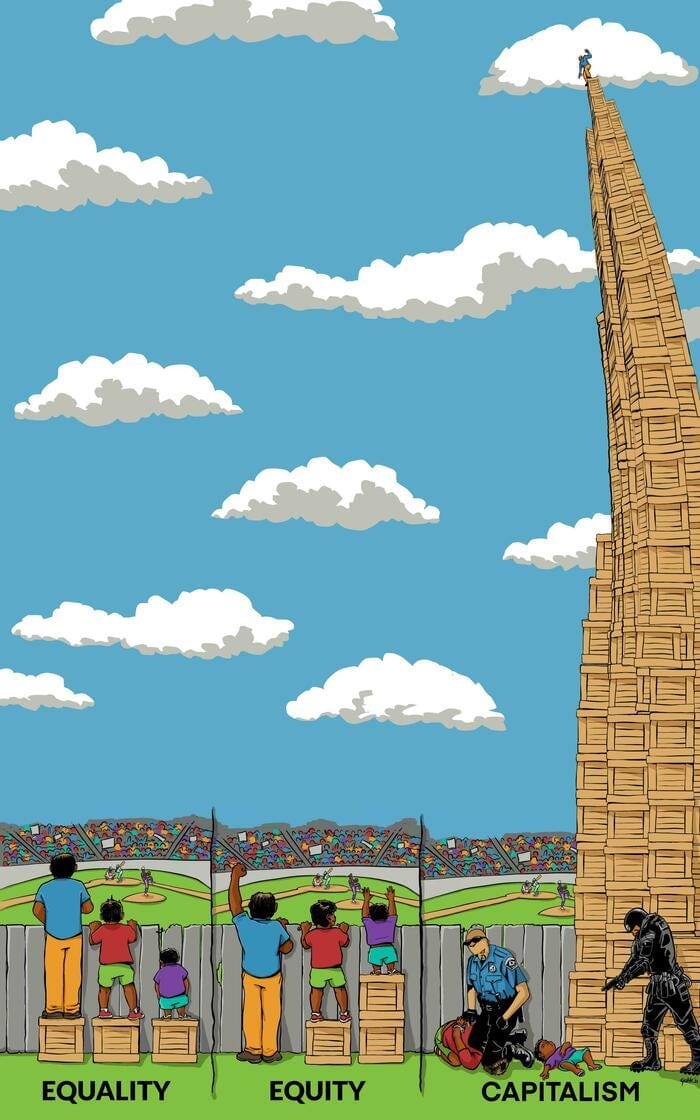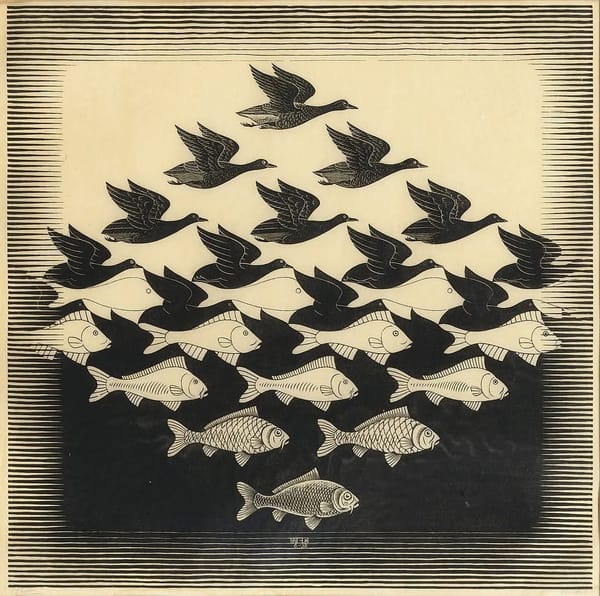What Happened To Meaningful Work

I.
What does meaning mean? When we say something “has meaning,” what are we talking about?
Investigating that brings up two main findings: a word or symbol can mean something definition-wise, or a physical entity — a person, a movie, a family heirloom — can have meaning to someone.
In both cases, the meaning comes from connection. Dictionaries connect words; they link each word to others which, arranged a certain way, give a description. Likewise, we get connected to people and objects in our lives in many ways — profound moments, hardship, helpfulness, even just proximity over time — that result in those things having meaning to us.
Enjoyable work is a luxury, but meaningful work should not be, because what was “work” meant to do in the first place? Improve conditions for the people and things around you (including yourself) that matter to you.
Increasingly, it is a luxury, and that’s an enormous problem. Increasingly, the only work that allows people to support themselves is either meaningless to us and our communities or actively harmful to them. Increasingly, the market only rewards that which enables instant gratification and short-term consumerism.
It is more profitable, in other words, to peddle news about kids trying to fund their own surgeries with lemonade stands than to actually help those kids. No one is actively preventing you from starting a company or a political initiative that tries to do so, but given the state of our market and government, it will be an unprofitable slog facing heavy resistance. Starting something that makes faraway rich people a little bit richer, however, will have VCs and politicians clamoring to throw their support behind you; this changes the types of work that are available for people to do.
It doesn’t have to be that way. It would be objectively more meaningful to vastly more people to have a system that makes sure no kid ever has to do that, even though it doesn’t create the largest possible volume of money during the next financial quarter.
“The metaverse” is a cool concept. Electric cars make sense. But Facebook’s big talk about “connection” rings hollow after they’ve spent years knowingly dividing, misleading, and harming communities for profit by the millions. And Tesla is on track to do more harm than good with the ways they mistreat workers, downplay dangers in their products, and openly support colonialism.
Profit gives people the ability to go do things they find meaningful, but what of the work itself? What if the vast majority of it causes harm, or wastes time, that can’t and won’t be undone by the money it brings in?
Work that actually fosters human flourishing and connection, producing real and long-term benefits for real human communities, is done in places, and people value it, but the market doesn’t, and that’s the problem. Professions like caretaking and teaching, or even profitable professions like programming when aimed at good social causes, are underfunded, and workers are often mistreated when they agitate for more. The wave of strikes we’re seeing is clear evidence.
The market is not run by a large cross section of real people, or even by an “invisible hand,” but rather by a horde of multinational and often monopolistic corporations, the Fortune However-Many-Thousand. We are denied a sense of progress, a sense of pride in our work, by the way their priorities diverge from ours, and our subsequent loss of a sense that our work is meaningful to ourselves and the people around us. Burnout flourishes.
How do we stem the tide of psychological (and environmental) damage that this misalignment is causing? How do we make the work we do more meaningful, and ideally keep it profitable? Do we change what those words mean? Do we change our work? How, as the venture capitalist would say, do we align the incentives?
II.
Work has looked very different over the millennia. Sometimes it was mostly just hunting and gathering. Sometimes agriculture and craftsmanship. Now a lot of it is knowledge work. Moving data around in some way.
Things like automation, new building materials, and economies of scale have made it vastly easier to produce and distribute most things, but people obviously want more. There’s still money to be made. Yachts and vacation houses to buy.
We’ve long had the ability, the GDP, to meet the basic physical needs of all people, but we aren’t doing that. It’s not the most profitable thing. As such, the increases that workers have made in productivity over the years haven’t gone toward that — toward helping wider swaths people procure the necessities of life and do more fulfilling work (or less work entirely) — but instead been used as excuses to expand profit margins for a wealthy few, who aim to keep everyone else too busy and overworked to notice how much they’re hoarding the extras.
They’ve used much of that extra money to rig the political system against labor, allowing them to take advantage of labor in the workplace to make more extra money, and so on.
This cycle, along with the interconnectedness we enjoy that makes viral growth possible, is making a few unfathomably wealthy, in ways that don’t actually reflect the work they did, and more reflect the advanced systems for distribution and infrastructure that they rely on and avoid paying fair taxes and wages for — roads, the Internet, labor, and so on.

Broken, outdated, medieval agreements about who created what value are making this happen. People talk about the “risk” founders took on to create the company, when in most cases, due to rich families and connections, there’s little real risk at all.
Despite this, and despite cases like Theranos where they can’t even deliver the goods, they continue to enjoy fortunes beyond our ability to wrap our heads around how large they are, beyond our ability to even spend them coherently, even while children all over the world starve and die for lack of food and medicine. This isn’t bleeding-heart propaganda. This is just life in 2021.
Most people don’t want this to be the case. Most of the workers who, today and throughout history, have built the bedrock, the foundations, the infrastructure that enables that massive wealth — doing undervalued and meaningful work like cleaning and cooking and caring for the elderly — are only just beginning to wake up to what’s been taken from them over the years. By that, I don’t even just mean wealth, but actual power — the ability, politically, to organize, and agree democratically on how their companies do things like allocate wealth and support social causes.
When workers can’t and don’t do this within companies, and those companies grow unjust and top-heavy and authoritarian, it affects the market as a whole; it changes what the Fortune However-Many-Thousand looks like and does in the day-to-day, letting them continue to amass power and carry out sociopathic agendas in politics. It diminishes everyone’s ability to find and do work that both supports and fulfills us.
When they can and do, however, it will align the incentives of the vast majority of people with the economic system they live under. It will tighten up the Venn diagram between meaningful and profitable work. Large swaths of people will be able to come together, agree on what’s meaningful, and prioritize it against the short-term profit of a few.
Many “democracies” have lost their ability to let people do this politically, let alone economically, having been corrupted by money in politics. With so many nations in this condition, we are in bad shape to take on the next challenge, i.e. banding together to let people hash out globally-relevant issues, like labor relations with multinationals or climate change, even though many around the world share views on these issues.
No number of new startups will “disrupt” this issue, because they operate within the very same system that has to be changed in order to fix it. Meaningful work has to be forged through unionization, political effort, workers wielding democratic control over companies, not just (but still including!) governments. We need to un-rig both our economic and political systems so that they’re responsive to everyone, not just a few hedge fund managers who derive meaning from making money and going golfing.
Until then, we will continue rationalizing the shrinking pockets of work that we have left, claiming they’re meaningful even when they aren’t, claiming they’re profitable even if the profits we earn are 0.0001% of what our bosses get. The logical extension of continuing down this path is not good. It’ll be one family owning Earth like a Monopoly board; their robot soldiers will just jettison the rest of us into space.
The personal is political. It’s true in general, and it’s true when it comes to finding meaning in your work.




